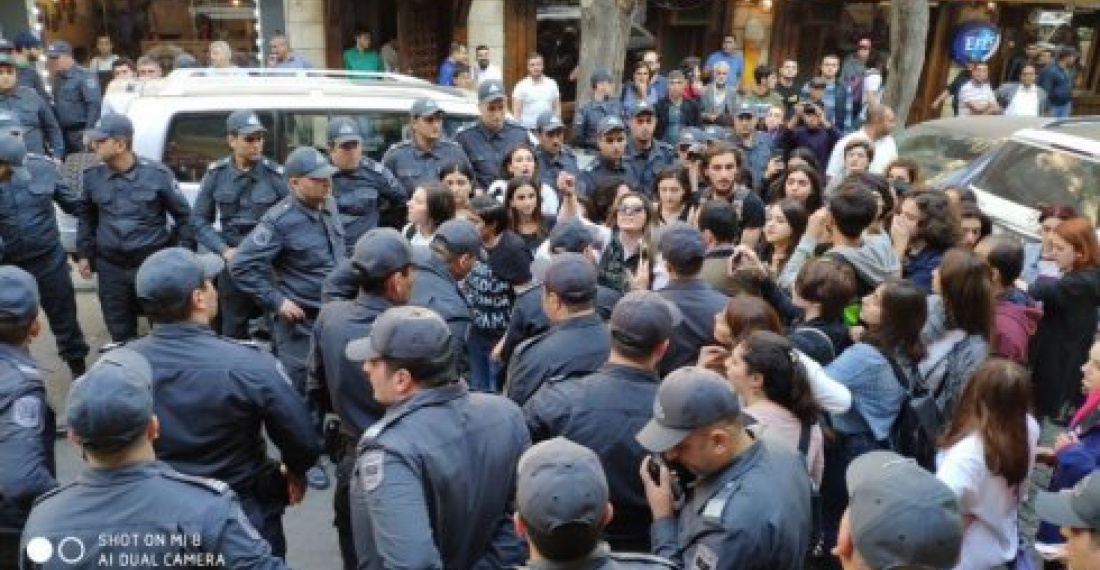The European Union has criticised the use of excessive and unprovoked force against peaceful demonstrations in Baku following incidents in the Azerbaijani capital on Saturday (19 October). Protestors led by opposition figures had gathered to call for the release of political prisoners and for reductions in rates for natural gas and electricity.
A statement by the spokesperson of the European External Action Service said
"On 19 October dozens of people were detained in Baku following their attempt to rally peacefully.
Excessive and unprovoked force was reportedly used to disperse the crowds and arrest participants. Such incidents need to be investigated. We equally call on the authorities to release peaceful protesters remaining in detention.
Freedom of assembly is a fundamental human right and we expect Azerbaijan to ensure that it can be fully exercised, in line with the country’s international obligations."
Their was a sharp rebuke by the Azerbaijani Foreign Ministry. In comments to the media, Foreign Ministry spokesperson Leyla Abdullaeva called on the EU to mind its own business.Abdullaeva said that the police were doing their duty by breaking up an illegal rally. "Most of those participating in the illegal rally were released after getting an official warning. Freedom of assembly has been ensured in Azerbaijan," she said. "The police treated the participants politely and no one was hurt," she said.
Abdullaeva said that the European Union should watch what was happening in its own backyard and how police were treating protestors in Barcelona and in France.
In the meantime, on Sunday, a second street protest involving a few dozen women took place in Baku. According to a report on Radio Liberty, some 50-60 people, mostly women, gathered in central Baku after police blocked the route of their planned march. Officers reportedly seized the placards carried by protesters and destroyed them, in addition to detaining some of the demonstrators.
The protesters were protesting violence against women during the previous day protest action, chanting, "No violence against women" and "Don't be silent about violence."
source: commonspace.eu with agencies
photo: Women protestors in the second day of street protests in Baku, on 20 October 2019 (picture courtesy of RFE/RL, Prague)






